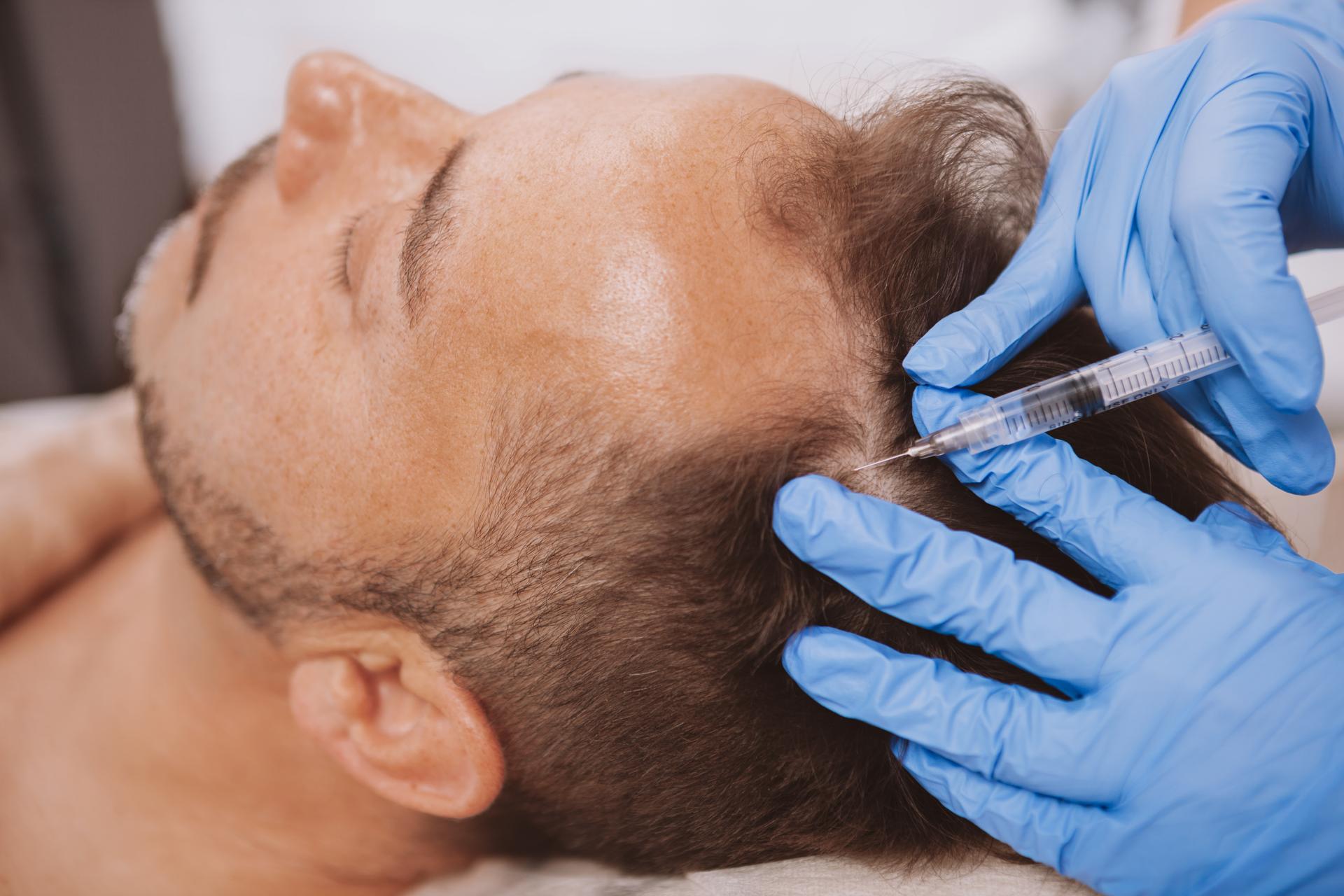Have you noticed your hair starting to turn gray prematurely? You might wonder what is causing your hair to gray so early. It is often most likely to be an outcome of stress! Most of us lead hectic, busy lifestyles, juggling jobs, families, and other commitments, leaving multiple avenues open for stress to become a part of our lives. Stress can take a toll on the body, especially your hair, causing it to lose its color and turn gray. If you are facing stress-related hair loss or premature hair graying, the experts at the New Jersey Hair Restoration Center (NJHRC) can give you the guidance you need.
While gray hair has always been associated with stress, it had not been scientifically proven. Recently, a study was carried by a leading research team to determine if stress actually causes hair to turn gray, and if so, how? The study used mice to observe the link between stress and the graying of hair. The mice were exposed to restricted movement, short-term pain, and psychological stress – all of which led to hair graying and depletion of the melanocyte stem cells.
Melanocytes are the cells that create the pigment known as melanin, which determines hair color. Melanocytes are produced by melanocyte stem cells present in the hair follicles at the root of the hair strand. These stem cells gradually disappear with age, and so does the pigment, leading to gray hair. Stress led to the release of the chemical norepinephrine, a stress hormone that causes the stem cells to proliferate prematurely, thereby depleting the hair’s pigmentation reserve.
The above insights prove that monitoring and managing your stress is important if you want to hair to stop graying prematurely any further. The ill-effects of stress are often more detrimental than we realize.
Making simple lifestyle changes and following some basic tips can go a long way in managing your stress. If you are looking for help in treating significant hair loss or hair graying, get in touch with the experienced professionals at New Jersey Hair Restoration Center.
Meanwhile, to manage your stress better, here are a few tips that will help you unwind and relax:
1. Work out regularly
Even a few minutes of daily workouts are good for your physical fitness and can also help you cut down on stress. Working out enables you to sleep better, elevates your mood, pumps up the endorphins in your body, increases your self-confidence, and helps you stay calm, positive, and focused.
Also Read: How Do I Know If My Hair Loss Is Stress-Related?
2. Follow a healthy diet
Following a diet packed with nutrients and antioxidants can help you negate your stress symptoms, one of them being prematurely graying hair. A healthy diet can improve your immune system, control your blood pressure, improve your mood, and help you eliminate stress. Ensure your diet includes a mix of lean proteins, carbohydrates, omega-3 fatty acids, and antioxidants. Additionally, steer clear of junk food, frozen foods, sugary foods, fried foods, and trans fats. Consume plenty of vegetables, fruits, fish, eggs, nuts, berries, beans, legumes, and leafy greens, and avoid skipping meals.
3. Get enough sleep
Getting adequate amounts of rest and a good night’s sleep is the key to a stress-free life. Lack of sleep can not only add to your stress level but can also impact your overall mood and energy levels. Introducing some simple habits in your daily routine, such as regular exercise, getting adequate sunlight, meditation, having a regular sleep schedule, limiting your screen time, and lowering your alcohol and caffeine intake, can help you sleep better.
See Also: Hair Loss vs. Hair Shedding – Is There A Difference?
4. Pursue your hobbies
Regularly set some time aside from your daily routine to do the things you enjoy. Invest your time in relaxing hobbies such as playing your favorite sports, reading, painting, watching your favorite movie or series, taking up a DIY project, knitting, taking a walk in nature, going on a hike, spending time with your pet, and so on.
5. Try out various relaxation techniques
The idea is to take a break and give your mind time to relax and unwind. To achieve this, you can try out a series of relaxation techniques such as practicing deep breathing, meditating, doing yoga and stretching exercises, practicing Tai Chi, talking to your loved ones, taking more holidays, etc.
Must Read: How to Tackle Common Hair Problems at Home
Conclusion
Your search for the best hair transplant doctor in NJ ends at New Jersey Hair Restoration Center. Consult with our qualified surgeons, experienced in a variety of treatments, including FUE hair transplant, FUT hair transplant, and PRP therapy.


